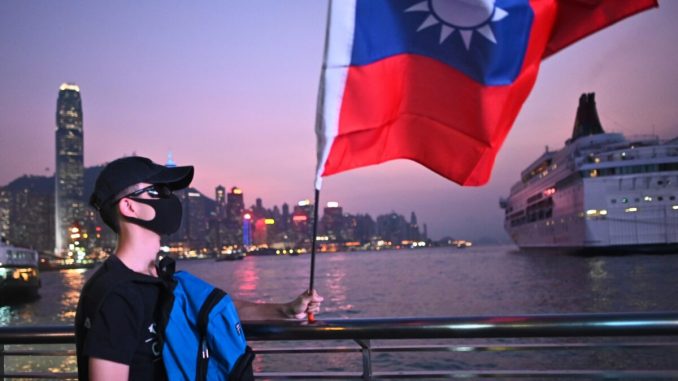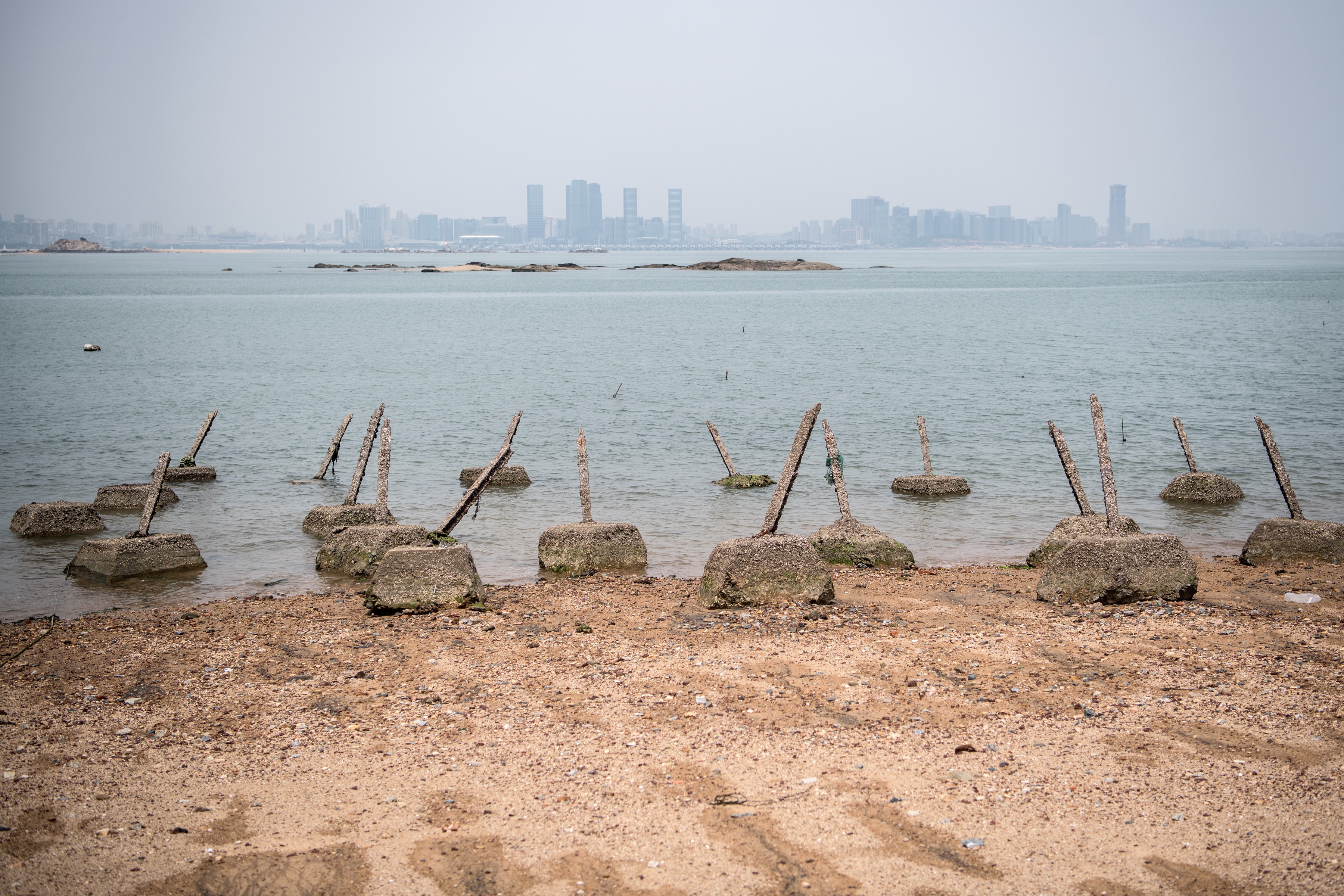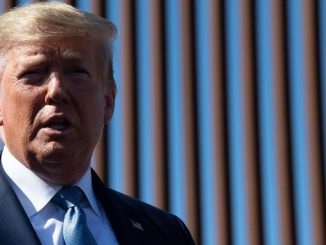
Commentary
The eyes of the world, it would seem, are on Taiwan, which has received a level of international attention far beyond the island’s modest position on the map. Hardly a day goes by without some report of Chinese air force planes violating the informal median line between the two states or ships encroaching on what Taiwan considers its territorial waters. And the widely respected Economist magazine has named the island the most dangerous place on earth.
Concern has reached the highest levels of the American government. Testifying in front of the Senate Armed Services Committee in January, Admiral Phil Davidson, head of the U.S. military’s Indo-Pacific Command, said that the numbers of weapons the Chinese have put in the field and how they are being used led him to believe that the Chinese government might try to seize control of Taiwan within the next six years.
These concerns were echoed a few weeks later at hearings to confirm Admiral John Aquilino as Davidson’s successor. Interpreting Beijing’s actions on the Sino-Indian border, its treatment of its Uyghur population, and the suppression of civil liberties in Hong Kong, as establishing a track record for taking aggressive action to achieve the aims of the Chinese Communist Party (CCP) sooner than U.S. planners anticipate. Aquilino advised a sense of urgency with regards to China preparing to take over Taiwan in the near future. “China considers establishing full control over Taiwan to be its ‘number one priority’. … My opinion is this problem is much closer to us than most think,” Aquilino said before the Senate Armed Services Committee in March.
Taiwan was also a major topic in the Suga-Biden talks, with Japanese Prime Minister Yoshihide Suga being Joe Biden’s first high-level visitor since his inauguration. The joint statement, though lacking in detail, stressed both sides’ commitment to peace and stability across the Taiwan Strait and the peaceful resolution of Cross-Strait issues.
What to do about “a Taiwan scenario” has become a cottage industry, as has speculation about when China will move to annex it, alleging a need to “reunify” with a territory it has never actually controlled and the clear preference of Taiwan’s inhabitants not to become part of mainland China. Advice abounds, ranging from the extreme of condoning Taiwan’s acquisition of a nuclear deterrent to doing nothing at all. Among the more plausible are the following:
- A porcupine strategy that involves Taiwan seeking to deny China its strategic objectives rather than attempting to destroy its weapons systems. To withstand a prolonged blockade, Taiwan should stockpile critical supplies and build infrastructure that would allow it to meet the needs of its citizens for an extended period without presuming immediate U.S. intervention. Critical items could be airlifted in to buy time for intervention. China could attack and damage Taiwan but not defeat it, at least without unacceptably high costs and risks.
- Using the strength of the U.S. economy to inflict unacceptable damage. Proponents argue that, since the dollar remains the linchpin of the international financial system, Washington can bring considerable leverage to bear against China.
- Just stop talking about it. Advocates of this approach believe that too much credence has been given to Chinese leader Xi Jinping’s declaration that the acquisition of Taiwan must not be passed along to future generations. U.S. nervousness about an attack may incentivize Beijing to actually do so, in effect creating a self-fulfilling prophecy.
- Use a chokepoint strategy. Defense Secretary Lloyd Austin has floated a concept of “integrated deterrence” that calls for allies to prepare for a future war. Geography means that Japan will have a crucial role, with the numerous chokepoints among its Nansei Islands chain which stretches from the southernmost tip of Kyushu to the north of Taiwan.
- Abandon the policy of strategic ambiguity. In his testimony, Admiral Davidson opined that, although the policy had served us well in the past, “these things should be reconsidered routinely. I’d look forward to the conversation.”
- Abandon the idea that the United States is a declining power and, as such, should trim its commitments to reduce the odds of going to war with China. Taiwan is lower down on the list of its priorities than South Korea and Japan.

In truth, none of these is a satisfactory solution.
As Brookings analyst Michael O’Hanlon has pointed out, a porcupine defense featuring sea mines, anti-ship missiles launched from shore batteries and helicopters, and resisting Chinese troops’ efforts to come ashore are unlikely to fare well against a more indirect Chinese strategy.
Trying to freeze China out of the global economy would be nearly impossible to do, since it occupies so large a part of it, and would be resisted by major players in the United States and elsewhere who stand to lose from such a boycott.
Beijing might well interpret silence on what the United States could do should China attempt to take over Taiwan as tacit consent to do so.
A chokepoint strategy for the Nansei Islands must take into account the geographic features of the islands themselves—not just their strategic location, but the fact that many are low-lying or volcanic, thereby limiting their usable land space. On those that are suitable, local inhabitants are unenthusiastic about hosting military units.
When asked about abandoning strategic ambiguity, National Intelligence Director Avril Haines opined that doing so would solidify Beijing’s feeling that Washington means to constrain it, and would “probably” respond by seeking to undermine American interests worldwide. Others have said that a clear commitment to defend Taiwan would incentivize Taipei to take rash action that might drag the United States into a war with China.
As in so many dilemmas in international relations, the problem lies in deciding which is the least worst scenario. After careful consideration, strategic clarity seems to have the fewest disadvantages.
Ms. Haines’ comment ignores the fact that Beijing has been saying for decades that the United States is trying to prevent China’s rise, so abandoning ambiguity would not change that deeply-held and often repeated conviction.
Moreover, the CCP regime has been seeking to undermine not only American interests, but those of the liberal democratic world order in general for an equally long period.
Charges that a U.S. declaration of strategic clarity would be provocative are absurd in light of even more provocative Chinese statements. As a recent case in point, Chinese Foreign Minister Wang Yi told his Japanese counterpart Motegi Toshimitsu that Sino-Japanese ties would be met with “the fiercest retaliation” if Japan were to involve itself in the Taiwan question, with a signed editorial in Global Times adding explicitly that military bases in Japan would be hit if Japan’s Self Defense Forces become involved in a Taiwan contingency.
Cutting U.S. ties to Taiwan will make defending South Korea and Japan harder, not easier. What faith in American commitments could the people of those countries have after we abandoned Taiwan? Moreover, should China annex Taiwan, China’s territorial waters would come perilously close to Japan—some 60 miles at its nearest point. While one can never be entirely certain whom a democratic country will elect to its highest office—who, for example, could have predicted the mercurial Philippine President Rodrigo Duterte—Taiwanese politicians are ever mindful of the reactions of the leviathan next door, with President Tsai Ing-wen declaring that “we neither bow to pressure nor act rashly when we have support.”
Being overtly provocative is unnecessary. Liberal democratic states have for years struggled to respond to China’s gray zone tactics of incremental accretions of territory that fall short of necessitating a response. It is time to respond in kind. Incremental steps that assure Taiwan of our support will gradually erode strategic ambiguity as well as providing Taiwan with the measure of support it requires to withstand Chinese pressure.
June Teufel Dreyer is a professor of politics at the University of Miami, a senior fellow of the Foreign Policy Research Institute, a faculty adviser to the Rumsfeld Foundation, and a former commissioner of the U.S.-China Economic and Security Review Commission. Dr. Dryer has authored several books on China’s ethnic minorities, China’s political system, China-Taiwan relations, and Sino-Japanese relations.
Views expressed in this article are the opinions of the author and do not necessarily reflect the views of The Epoch Times.






Be the first to comment